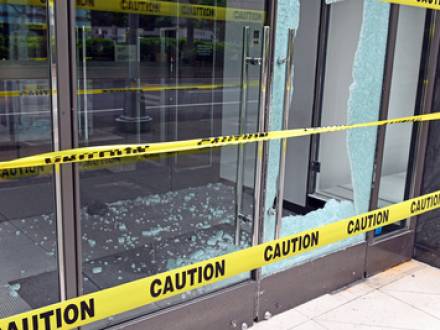TELEPHONES ANSWERED 24 HOURS A DAY
Are There Any Defenses for Federal Looting Charges?
 Looting during times of civil unrest or natural disasters can lead to serious federal charges. If you face looting charges, you might wonder what legal defenses are available. An Illinois lawyer can help you explore potential defenses.
Looting during times of civil unrest or natural disasters can lead to serious federal charges. If you face looting charges, you might wonder what legal defenses are available. An Illinois lawyer can help you explore potential defenses.
What Is Federal Looting?
While there is not a specific federal "looting" statute, federal prosecutors often charge looting-related crimes under various laws, including:
- The Civil Unrest statute (18 U.S.C. § 231)
- The Federal Anti-Riot Act (18 U.S.C. § 2101)
- Interstate transportation of stolen property (18 U.S.C. § 2314)
These laws cover activities such as interfering with law enforcement during civil disorders, inciting riots across state lines, or transporting stolen goods across state boundaries.
To secure a conviction, federal prosecutors must prove several elements beyond a reasonable doubt, depending on the specific charge. This may include proving that you crossed state lines, participated in or incited a riot, or knowingly transported stolen property.
Potential Defenses Against Federal Looting Charges
While each case is unique, some common defenses may apply to federal looting-related charges:
Lack of Intent
You might argue that you did not have the intent to commit a crime. For instance, if you were present at a protest that turned violent but did not participate in any illegal activities.
Mistaken Identity
In chaotic situations like riots, it is easy for witnesses or law enforcement to misidentify people. Your lawyer might argue that you were not the person who committed the alleged offense.
First Amendment Protection
In some cases, especially those involving the Anti-Riot Act, your lawyer might argue that your actions were protected as free speech under the First Amendment. This defense could be particularly relevant if you were organizing or participating in a peaceful protest that later turned violent without your involvement.
Lack of Federal Jurisdiction
If the prosecution cannot prove that your actions crossed state lines or affected interstate commerce, they may not have federal jurisdiction over the case. For example, if the alleged looting occurred entirely within one state and did not involve any federally protected property or interstate commerce, your lawyer might argue that it should be a state matter rather than a federal case.
Violation of Constitutional Rights
If federal law enforcement violated your rights during the arrest or investigation, some evidence might be suppressed, weakening the case against you. This could include instances of unlawful search and seizure, failure to read Miranda rights, or coerced confessions.
What You Should Understand About the Consequences
Federal looting-related charges can result in severe penalties, including:
- Lengthy prison sentences (potentially several years, depending on the charge)
- Substantial fines
- A permanent federal criminal record
These serious consequences make it vital to seek legal representation if you face federal charges related to looting.
Reach Out to a Chicago, IL Criminal Defense Attorney
Every looting case is different, and the best defense strategy depends on the specific facts and circumstances. A Chicago, IL criminal defense lawyer can review your situation and advise you on the most promising defenses for your case. Call Law Offices of Hal M. Garfinkel LLC, Chicago Criminal Defense Attorney at 312-629-0669 to start with a private consultation.




